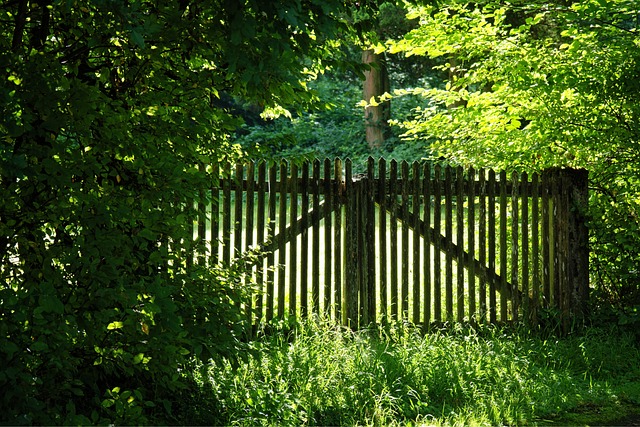“Enhance your New Bedford, MA, outdoor space with a private sanctuary using privacy fence installation. This comprehensive guide explores the benefits and diverse types of fences, offering insights for residents seeking to secure their yards. Discover why New Bedford is an ideal location for this endeavor, from its rich landscape to supportive local regulations. We’ll walk you through site assessment, step-by-step installation, post-care tips, and navigate local permits, ensuring your new fence stands strong and serves as a haven for years to come.”
- Understanding Privacy Fences: Benefits and Types
- Why Choose New Bedford for Installation?
- Site Assessment: Preparing for Fence Placement
- The Installation Process: Step-by-Step Guide
- Post-Installation Care: Maintaining Your Privacy Fence
- Local Regulations and Permits: What You Need to Know
Understanding Privacy Fences: Benefits and Types
Privacy fences serve as more than just barriers; they are solutions designed to create a sense of security, exclusivity, and tranquility in your outdoor space. Whether you’re seeking protection from prying eyes, a buffer against noise pollution, or simply a way to define your property lines, understanding the different types of privacy fences is key to making an informed decision.
From traditional wooden picket fences that offer a classic aesthetic to modern vinyl options known for their durability and low maintenance, each type comes with its unique advantages. Solid wood fences provide maximum seclusion but require regular upkeep, while semi-transparent designs allow filtered light and air circulation. Vinyl fences are virtually maintenance-free, resistant to rot and pests, and can be customized to match various styles.
Why Choose New Bedford for Installation?
New Bedford, MA, is an ideal location for privacy fence installation for several reasons. The city’s strategic position along Massachusetts’ South Coast makes it easily accessible from nearby metropolitan areas like Boston and Providence, ensuring convenient service and timely installations. Moreover, New Bedford’s diverse landscape offers a range of options for fence designs and materials, catering to various preferences and budgets. Whether you’re looking for a classic wood fence or a modern metal one, the city’s local suppliers and installers can provide tailored solutions.
The community in New Bedford values both privacy and aesthetics, creating an environment where residents appreciate well-designed fences that enhance property values without compromising on seclusion. The region’s mild climate also supports year-round maintenance and installation, ensuring your new fence remains in top condition for years to come.
Site Assessment: Preparing for Fence Placement
Before installing any privacy fence, a thorough site assessment is essential to ensure optimal results. This initial step involves evaluating various factors that will impact the placement and design of your new fence. Experienced fence contractors will consider the layout of your property, existing structures, trees, and other landscaping elements to determine the best location for posts and panels. They’ll also check local regulations and building codes to guarantee compliance.
During this phase, professionals might take measurements, create detailed plans, and discuss material options with clients. It’s an opportunity to address any concerns or specific requirements you may have regarding privacy, aesthetics, or functionality. Proper preparation at this stage helps in avoiding potential issues down the line, ensuring a well-built and long-lasting fence that serves its intended purpose effectively.
The Installation Process: Step-by-Step Guide
The installation process for a privacy fence in New Bedford, MA, involves several key steps to ensure a secure and aesthetically pleasing barrier. First, measure and mark the perimeter of your desired fence line accurately. This step is crucial as it determines the quantity and size of materials needed. Clear the area of any debris or obstacles to create a smooth workspace for construction.
Next, dig post holes along the marked line using a post-hole digger. The depth and width of these holes should align with your fence’s specifications and local building codes. Place concrete in each hole and allow it to set completely. Once the concrete is cured, attach the fence panels or boards to the posts securely. Use appropriate fasteners like nails or screws, ensuring all connections are tight and secure. Finally, trim any excess material and fill any gaps with caulk for a neat, professional finish.
Post-Installation Care: Maintaining Your Privacy Fence
After your privacy fence installation in New Bedford, MA, proper care will ensure its longevity and maintain its purpose of shielding your private space. Regular cleaning is essential; brushing away dirt, leaves, or debris prevents moisture buildup that could lead to rot or mold. A gentle wash with soapy water and a soft-bristled brush every few months will keep it looking pristine.
Repainting or resealing the fence annually can protect it from harsh weather conditions and UV rays, preserving its color and structure. Keep an eye out for any signs of damage, such as broken panels or warped posts, and address these promptly to avoid larger issues. Regular maintenance ensures your privacy fence remains a secure and appealing addition to your property.
Local Regulations and Permits: What You Need to Know
Before installing a privacy fence in New Bedford, MA, it’s crucial to familiarize yourself with local regulations and permit requirements. The city or town where you reside may have specific guidelines regarding fence height, materials, and placement. Failure to comply could result in delays or fines. Reach out to your local building department or municipality to inquire about permits and any restrictions that apply to your property.
Understanding these regulations early on ensures a smooth installation process. Permits usually involve submission of plans detailing the fence’s design and dimensions. Ensure you meet all criteria to avoid unnecessary complications. Stay informed, as codes can change over time, and always seek professional advice if needed to navigate any legal requirements successfully.
